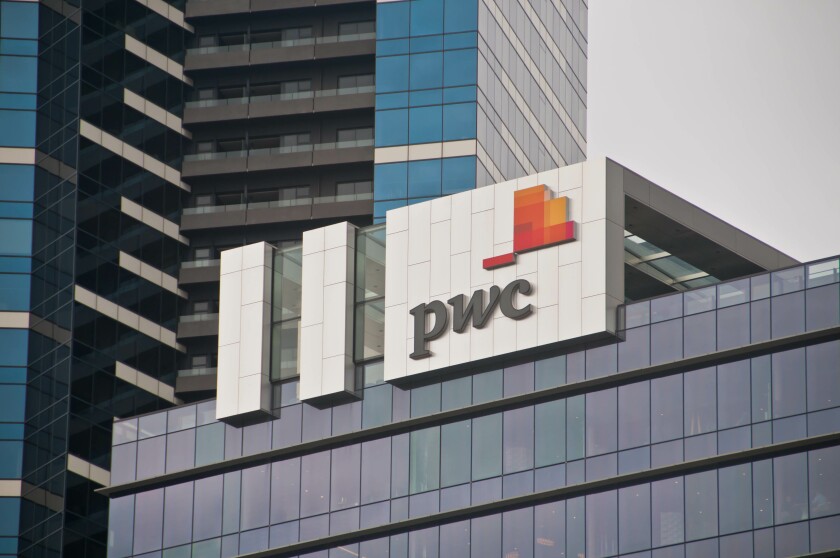PwC Australia may have used information from confidential government tax law briefings to advise US tech company Google, reported Reuters on Wednesday, July 5.
This was the first time a company had been linked to the tax scandal as a recipient of leaked information, but both Uber and Facebook have now said that they might have benefitted too.
Reuters reported that two sources claimed Google had been given confidential information about the probable January 1 2016 start date of Australia’s Multinational Anti-Avoidance Law (MAAL), which was eventually introduced ahead of schedule on December 11 2015.
Facebook and Uber have said that they also received information about the MAAL from PwC Australia. The firm maintains that no government information was used by clients to pay less tax.
Yesterday, July 6, Labor Senator Deborah O’Neill and Greens Senator Barbara Pocock called on PwC to name all 14 companies that received confidential information.
In the aftermath of the scandal, private equity firm Allegro Funds has sealed its deal to buy PwC Australia’s government consulting arm for A$1.
The new company will be renamed Scyne Advisory and will receive a A$100 million ($67 million) investment from Allegro Funds for transition costs. It will only advise public sector clients.
India fears impact of EU carbon border tax
India’s exports are likely to be hit hard by the 20 to 35% tariffs on high carbon-emitting goods that will be introduced as part of the EU’s carbon border levy, the Ministry of Finance said in a report yesterday, July 6.
The levy, which comes into effect in 2026, is the first of its kind in the world. It is part of the EU’s plan to become a net zero emitter of greenhouse gasses by 2050.
Tariffs will target pollutive imports such as steel, cement, aluminium, fertilisers, electricity and hydrogen.
Reporting of the carbon contents of these goods will be mandated from October 1 2023.
“The impending downside risks to India’s exports include the European Union’s introduction of the Carbon Border Adjustment Mechanism,” said the finance ministry in its annual economic report.
Turkey hikes corporate tax to fund earthquake recovery
The Turkish government plans to raise taxes on corporations to pay for the recovery of its earthquake-hit regions.
According to a report from Gulf News on Wednesday, July 5, the Erdogan government submitted a draft proposal to Parliament for a vote this month.
The ruling Justice and Development Party, with the support of President Tayyip Erdogan, promised a comprehensive plan to rebuild the regions affected by major earthquakes in February, which killed more than 50,000 people.
Proposals include the construction of more than 600,000 homes to re-house millions who were made homeless. Some experts say the recovery could cost more than $100 billion.
To cover this expense, the government plans to increase the basic corporate tax rate from 20% to 25%. Meanwhile, the corporate rate on banks and financial institutions will be raised from 25% to 30%.
Higher corporate rates may undermine Turkey’s pro-business status. According to the World Bank, Turkey is 33rd in the global ranking of the easiest countries to do business in.
Hedge fund manager settles tax advice case with Deloitte and MWE
Hedge fund manager Chris Rokos settled a UK court dispute with the firms who advised him on the tax benefits of a £100 million ($127 million) investment, reported the Financial Times on Tuesday, July 4.
‘Big four’ firm Deloitte and law firm McDermott Will & Emery advised Rokos on investing in a data centre in the Tyneside enterprise zone in 2009. He invested £40 million of his own cash on top of a £60 million loan, expecting to receive tax relief on the investment even if the venture failed.
However, HM Revenue and Customs denied him the tax claim and issued an accelerated payment notice in 2016.
The Tyneside data centre was a commercial failure. In response, Rokos filed his lawsuit against Deloitte and MWE at the England and Wales High Court in 2020.
Rokos is one of the most successful British hedge fund managers. He co-founded Brevan Howard in 2002 and later set up Rokos Capital Management in 2015. The Sunday Times Rich List estimates his personal net worth at £2 billion.
Ireland prepares €6.4bn budget on back of tax surplus
The Irish government is set to reveal a €6.4 billion ($7 billion) spending package in its autumn budget after strong corporate tax and windfall tax revenue growth.
Irish Finance Minister Michael McGrath said the government will boost public spending by €5.2 billion and introduce a package of €1.1 billion in tax cuts, reported Bloomberg on Tuesday, July 4. This includes a €2.2 billion in infrastructure investment.
Corporate tax revenue has increased by 20% so far this year, reaching €10.6 billion in the first half of 2023. Ireland may be set for a €11.7 billion budget surplus by the end of 2023, so the government is making plans to increase public spending, reduce taxes and establish a new sovereign wealth fund.
China rallies countries against global shipping levy
China has called on developing nations to oppose plans for a global tax on shipping emissions, reported the FT on Sunday, July 2.
The International Maritime Organization (IMO) held a meeting of its environment committee this week in London to discuss proposals for a global tax on shipping.
However, the Chinese government issued a diplomatic note to participating countries, urging them to stand against what it considers an “unrealistic” measure. The note claimed the levy would raise the costs of maritime transport, slow down economic growth, and put development in the shipping sector at risk.
China argued that a flat tax on shipping would also exacerbate the wealth gap between poorer, export-oriented economies and developed member states.
The IMO intends to halve annual shipping emissions by 2050. China backs an alternative commitment to reach net zero emissions by around the mid-century.
China is the biggest polluter in terms of carbon emissions in the world, accounting for over a quarter of carbon dioxide and a third of greenhouse gasses worldwide.
Next week in ITR
ITR will be following the state of play in pillar one discussions. The OECD may be about to make an announcement on the Multilateral Convention next week. This could be a definitive moment for the two-pillar solution.
Readers can expect these stories and plenty more next week. Don’t miss out on the key developments. Sign up for a free trial to ITR.












